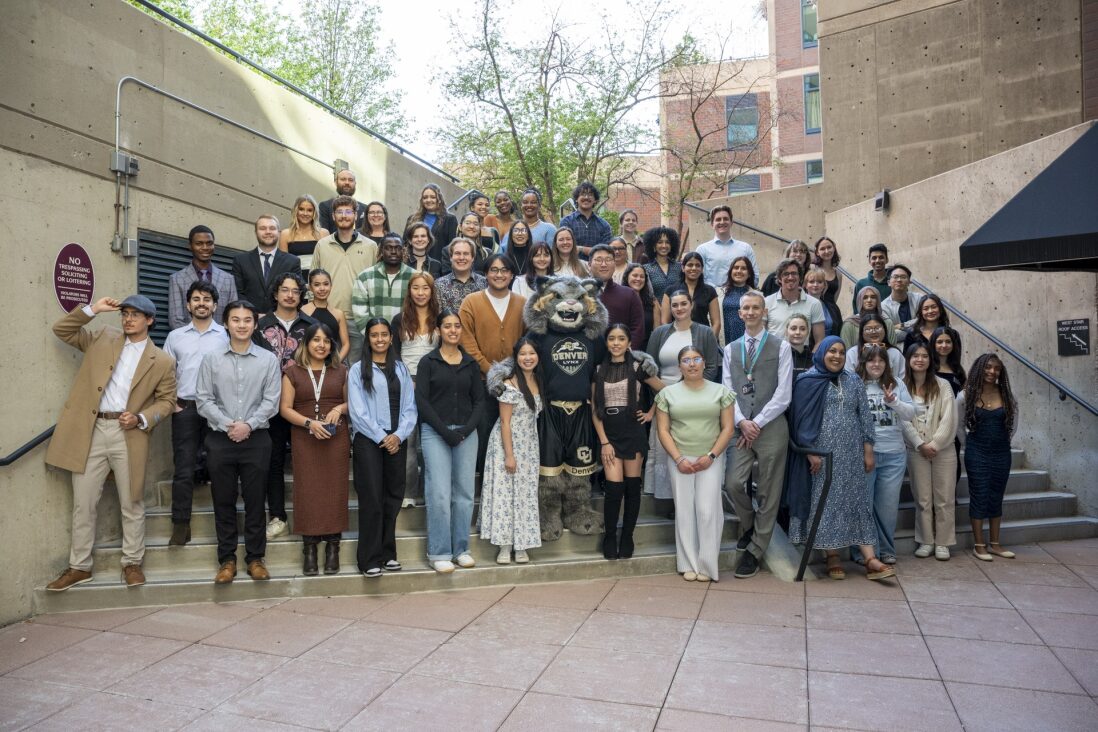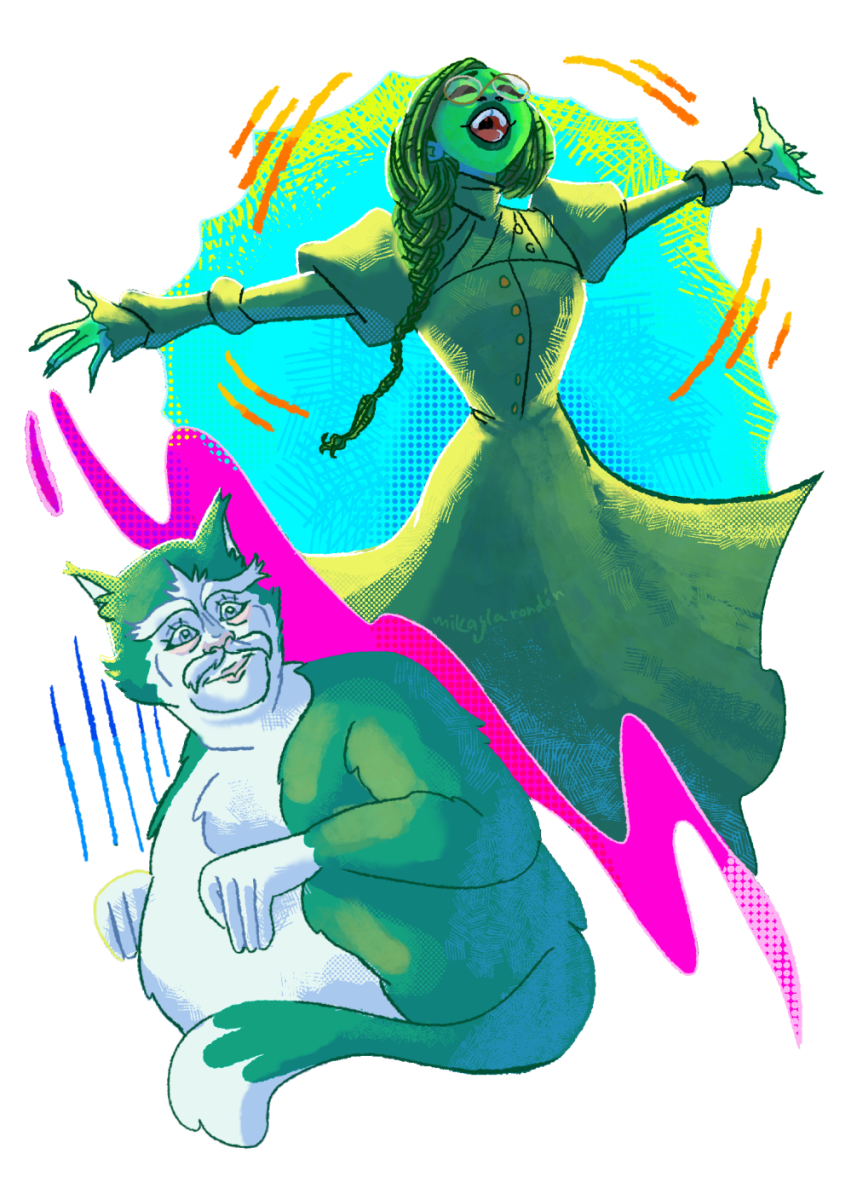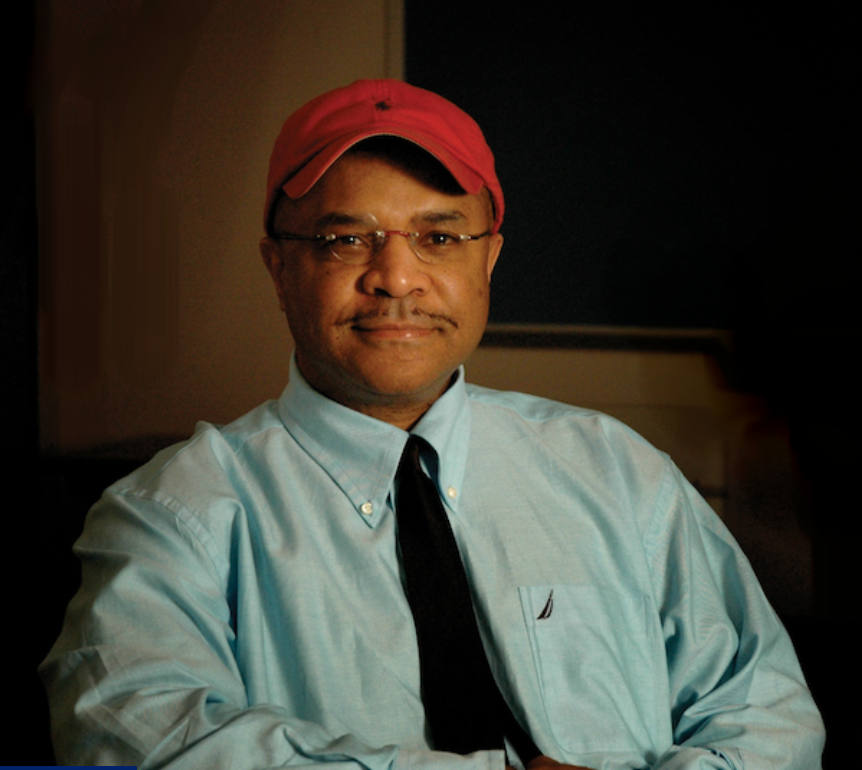On March 11, philosopher George Yancy delivered his lecture, “The Hoax of White Innocence,” to an audience of eager Auraria students and staff members. Yancy, a professor at Emory University in Atlanta, is an esteemed scholar in the world of philosophical race studies. He has spoken all over the world and published many books such as Until Our Lungs Give Out and Black Bodies, White Gazes.
His work has been at the epicenter of many contemporary conversations including how whiteness perpetuates racism both in the United States and abroad. His work invites a critical perspective on the role of continued white supremacy on systemic and personal levels of those impacted by such. Yancy’s active presence in the field has stirred controversy, particularly around his piece Dear White America. The New York Times opinion piece gathered over 2,000 comments, numerous voicemails and emails to his personal contacts, and a variety of other critiques. He was invited to elaborate on some of the themes expressed in both his lecture and Dear White America.
“The history of western philosophy and the tradition of Anglo-American philosophy are not traditions that have historically taken the question of race seriously and certainly not the question of whiteness seriously,” said Yancy. “It’s really black philosophers and philosophers of color who have focused on the question of race and whiteness and racism seriously, so part of it is just a question of identity, I am a philosopher, I am a black person, I am embodied as black.” As opposed to viewing racial studies from a political or social studies background, Yancy says that the usage of philosophy has allowed him to study race from a larger breadth than that of other disciplines.
Yancy takes his time in the building of what it means to be black in societies predicated on racial prejudice. He describes the ways in which black bodies are already attributed to certain stereotypes even before they have the chance to be recognized as human, saying that “already, we are stereotyped as being a certain kind-of entity. We are inferior, we are hypersexual, we are deviant, we don’t have a history.”
Yancy gave the example of a white woman clutching her purse as he steps onto an elevator or another white person locking their car as he walks by; the mere existence of a black body in space is predicated on an idea of “Blackness” that black people have no control of. “This is the example I had given of walking around on campus at predominantly white universities,” Yancy said. “White people don’t walk around and ask, ‘Am I wanted here?’ The problem is the white gaze and whiteness, that is considered the normative ideal.”
This normative white gaze is one that was at the epicenter of Yancy’s talk. The term normative for Yancy is one that is crucial for understanding modern white supremacy; he utilizes it to describe how whiteness is the standard in society, a standard that creates a certain type of regulation for anyone who is not white. For Yancy, understanding the normative ideals that are created by whiteness are not just ones employed by those who are outwardly racist. He argues that it is necessary to comes to terms with the fact that the existence of white people will always create a certain norm, one that causes discrepancies in the way black people are treated in comparison.
“It is difficult to talk about how white people would not be implicated or complicit with perpetuating that white supremacy or whiteness,” Yancy said.
When questioned about his infamous piece that was published in the New York Times, Dear White America, Yancy admitted that while he knew there would be some backlash he didn’t anticipate the “sheer vitriol [of] the anti-black discourse.”
Many of the comments that he received following the publication of his letter included violent, racist language such as “you can leave this country in a coffin” or “kill yourself right now.” The nature of the comments was something that Yancy did not foresee.
Yancy makes a point that this sort of discomfort for white people, even to his own detriment, is not something he wants to stray away from even in the face of such bigotry.
“The response [to Dear White America] seemed to be [that] rather than grappling or tarrying with it,” Yancy said, “they projected onto me all of their hatred, and all of their confusion, and all of their sense of feeling threatened by my pointing out their whiteness and thereby saying that they’re implicated and complicit with white supremacy.” Yancy draws his thinking from people like James Baldwin, arguing that this is a necessary part of change for a society that may coexist, even with our differences.
“[Baldwin] talks about how if integration means anything, it means that black people will force, with love, white people to see themselves as they really are,” he said.
Yancy, however, does not want to mistake simply acknowledging racial biases as the solution to many of these problems in contemporary society. When asked about some of the commentary he received that wasn’t as hostile as the comments previously addressed, Yancy says that sentiment is good, but not enough. Many of the comments were not entirely valuable for genuine reflection of complicity in white supremacy.
“Virtue signaling is an important aspect of whiteness,” Yancy said, “as part of the structured whiteness and it is an important gesture on the part of white people that suggests that they’re not really addressing their complicity in the issue of whiteness.” Virtue signaling is an expression of certain opinions that may seem to be out of good character or morally correct but are oftentimes performative. In the case of the comments left on the article, Yancy says that this sort of proclamation is only to signal to other white people just how good they are without contributing to actual social change.
For Yancy, to simply not be outwardly racist is not sufficient for the world today (hence the name of the talk “The Hoax of White Innocence”). To merely tell oneself that they are one of the “good whites” is to “gesture toward how good they are and how distant they are from the past but in that gesture what they fail to do is realize that whiteness is not just a historical moment frozen in the past, it is precisely in the present, it’s impact is precisely in the present.”
For Yancy, even the most well-intending ‘non-racist’ white people get to benefit from the security white identity provides. “White people are UC Denver are not a part of the Klan, but that doesn’t make them exempt from the ways in which white privilege and white power continue to accrue to them or for them,” Yancy said. “It is still a part of the DNA of the U.S.”
In recent times, many Americans seem to be concerned that calling out whiteness using “identity politics” have caused more harm than good.
“In my humble opinion, as an Asian American and a first generation immigrant to the United States,” said one commenter on Yancy’s article, “all I have to say is all the focus on race and putting a black/white label on everything by the media in 2015 has overall made race relations much worse in America.”
Yancy counters this argument by offering that identity politics are not a new phenomenon in the United States. “As black people were enslaved and brought to this country, it was always a question about identity politics, it was always about whiteness,” said Yancy. “In fact, to the extent that white people identified themselves as white was the extent to which they were not identified as Indigenous, white people have always played identity politics and by playing there I mean assuming that they are the identity that is equivalent to the human.
“Whiteness is the norm, it is the paradigm. To be black is not to play identity politics, it’s to understand that as a person who is black and being apart of a group that is targeted, it means that you’re forever a threat, a threat in ways that you deny.”
Yancy harped on the point that the very existence of black people is always presumed to be a threat. “Black people, their very being, is already deemed a problem,” he said. “Black people are deemed problems, white people just have problems.”
For Yancy, people like the commenter on Dear White America oppose identity politics, while using identity politics to their advantage in conversations about race. He talked about the Model Minority Myth as something that white people have always used to create an idea of what Black people ought to be when in comparison to other ‘good minorities.’
“The model minority myth has been used to lambast and to belittle black people,” Yancy said.
Yancy went on to touch on the historical contextualization of white supremacy long before the 21st century. Although the term “identity politics” is a new term, the existence of racial categorizing is not. “It’s important to think about even certain conflicts in Africa that they weren’t necessarily conflicts that existed pre the arrival of Europeans and colonization,” said Yancy. “I would describe as a post-colonial phenomenon, in which Europeans come in and they make distinctions and create tensions within an otherwise organically functioning society.”
Anti-black discourse reaches farther than just the boundaries of the U.S. and for Yancy, it is exactly that naïve thinking that has caused it to flourish around the world. “When Obama was president, the state-run newspaper in North Korea called Obama a ‘wicked Black monkey,’” said Yancy. “Notice the idea of Black people being monkeys or simians is old stuff. I mean that is old in terms of American anti-Blackness but notice how global this anti-Black language is. Despite where you happen to be around the world it is as if Blackness itself… darkness itself implies something we ought to avoid.”
Whiteness as an example of “human behavior” is something that Yancy explored in depth in his lecture.
“In our contemporary world and historically, when you get the confluence of modernity, economic expansionism, industrialization, mainly the expansion of Europe, what you’re getting along with that is a philosophical anthropology view of what constitutes the human,” said Yancy. “The places that you go, these are not humans that you are meeting, they might be humanoid, they might be person-like, but they’re not white and therefore they are what’s called ersatz or inferior, but they never rise to that occasion of being fully human because they’re not fully white.”
Yancy is able to lecture at predominantly white institutions about difficult topics like the one he did at CU, because of receptive audiences, although he believes that they still have work to do.
“I welcome at some level white folk who seem to have good intentions, but yet seem to honestly get it wrong,” said Yancy. “I’ve encountered those cases where white people say things that sound progressive like ‘I was part of the Black Lives Matter movement’ well, good for you, but then we have to discuss what it means to be white, and to what extent when you’re marching through the street does your whiteness still protect you?”
For Yancy, there is work to be done beyond that is vital to recognition of white privilege and must be done to contribute to larger social change. He says that his lectures offer an opportunity for predominantly white audiences to listen to other white people and understand the their own biases.
“[Audiences] understand and say something like, ‘Oh wow did you see how subtle that was?’” said Yancy. “Yet it is still racism, it’s still whiteness operating.”
Yancy aims to gesture to white audience members to feel their discomfort.
“Tarry to linger with this absolute discomfort, this sense in which perhaps they may feel under attack, but that is not my problem,” said Yancy. “There is a way in which they didn’t ask to be born into a society that’s predicated on whiteness, I certainly didn’t, but this is what we’ve inherited. The question becomes, what are you prepared to do about it?”
Find George Yancy’s Dear White America here.



















